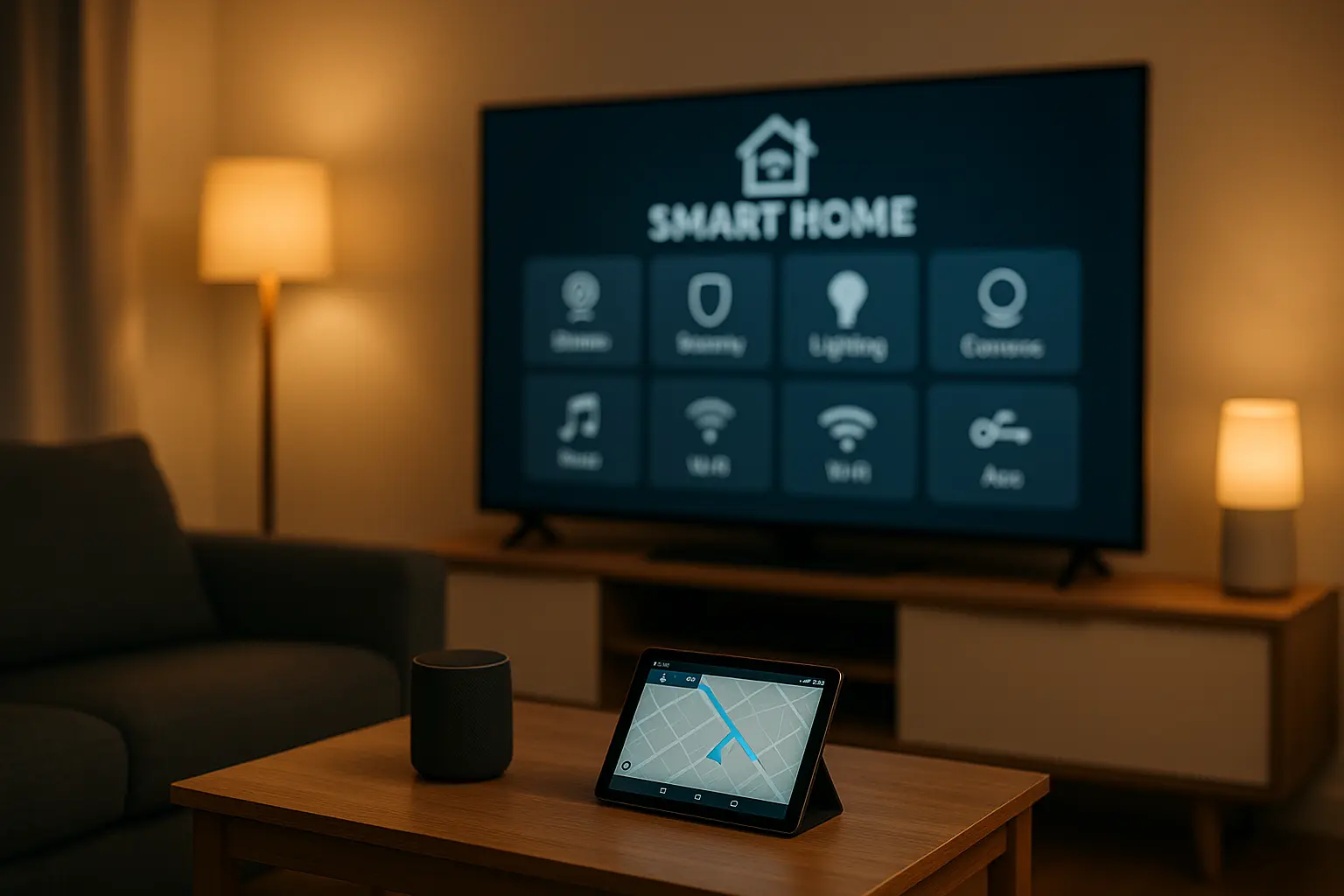In an era where technology is rapidly becoming an integral part of our daily lives, the concept of smart devices and intelligent systems is no longer futuristic but a lived reality. From controlling our home environment to navigating the complexities of world networks, these smart systems have revolutionized how we interact with the world around us. The integration of Internet of Things (IoT) based devices into our homes and transportation systems represents a paradigm shift towards automation and intelligent control. Whether you’re a tech enthusiast or just someone curious about the digital revolution, understanding these changes is crucial. Let’s embark on a journey to explore how IoT and smart technologies are reshaping the way we live and communicate.
Smart Home: The Hub of Automation
Our homes are fast transforming into smart ecosystems, where devices communicate and collaborate to provide unparalleled comfort and security. Far from being a novelty, these systems offer tangible benefits in energy management, security, and everyday convenience.
Transforming the Ordinary
Imagine walking into your home, and the lights automatically adjust to your preferred settings, the temperature is just perfect, and your favorite music starts playing in the background. This is the reality facilitated by smart home systems. These devices, from smart thermostats to voice assistants, work together, creating a seamless living experience.
The Role of IoT in Home Automation
The backbone of this transformation is the IoT network, which allows various gadgets to connect and exchange data. This connectivity ensures that your smart devices can ‘talk’ to each other, adjusting operations based on your routines, preferences, and even predicting needs.
Security and Beyond
Security is a major factor driving the adoption of smart home technology. Smart cameras, motion sensors, and alarm systems offer real-time monitoring and alerts, ensuring peace of mind whether you’re at home or away. For many, the ability to manage security systems remotely is a game changer.
The essence of home automation lies in its ability to adapt and evolve with our needs, saving time, energy, and resources while elevating our living standards. Each smart home is a testament to the power of technology driven by IoT.
Navigating the Future: Smart Transportation Systems
As we shift from smart homes to smart roads, the promise of smart navigation systems comes into focus. The transportation industry is witnessing a revolution akin to that of personal technology, with IoT at the helm.
Redefining How We Move
The notion of smart transportation extends beyond autonomous vehicles. It encompasses integrated systems that provide real-time traffic updates, route optimization, and enhanced safety features. With the aid of IoT, our cars are not just vehicles; they are sophisticated, mobile communication hubs.
The Connectivity of Smart Vehicles
Modern vehicles come equipped with advanced sensor systems that gather and relay data crucial for efficient travel. Through IoT, information on traffic patterns, road conditions, and weather forecasts is readily available, enabling smarter decision-making.
Smart Infrastructure
Smart roads and infrastructure further illustrate the synergy between vehicles and transport networks. Sensors embedded in roads communicate with vehicles, optimizing traffic flow and reducing congestion. These innovations lead to significant improvements in energy efficiency and time management.
As we continue to embrace these advancements, the potential to revolutionize public transport, logistics, and everyday commuting is immense. We are on the brink of a transportation era defined by efficiency, safety, and intelligence.
The Power of Control: Personal Assistants and Device Management
Personal assistants have transitioned from simple tasks to complex operations, redefining how we manage our digital lives. These smart assistants act as central control points for managing various devices and systems in our homes.
Connecting and Managing with Ease
Today’s personal assistants go beyond setting reminders or playing music. They serve as a central hub, interlinking all smart devices, offering effortless control over home systems. Whether it’s adjusting the thermostat, dimming the lights, or even locking doors, these assistants streamline management through voice commands or mobile apps.
Enhancing Efficiency through Automation
Automation is at the heart of these smart systems. By utilizing data and learning from user patterns, personal assistants provide personalized experiences, thus increasing efficiency. Smart assistants optimize energy consumption, manage workloads, and even suggest improvements based on user behavior.
The Future of Integration
As personal assistants become more sophisticated, they will continue to integrate deeper into our daily routines, offering security, efficiency, and ease of use. The future of personal assistants lies in their ability to learn and adapt, providing a user-centric model of device management.
The evolution of personal assistants showcases the potential of integrating technology seamlessly into our lives, leading to a more connected, efficient, and intelligent environment.
We stand on the cusp of a technological revolution where the integration of smart systems is not just a possibility, but an ongoing transformation. From the convenience of fully automated home environments to the efficiency of smart transport networks, the influence of IoT and smart technologies is profound and far-reaching.
As we continue to embrace these advancements, it is essential to remain informed about the dynamic landscape of smart systems. The path forward is dependent on our ability to adapt and utilize these technologies effectively, ensuring that we can harness the benefits of this new era while addressing challenges such as privacy, security, and the digital divide.
Together, as a community, we can shape a future where smart technology not only transforms our lives but also enhances the world around us, creating a more connected, efficient, and intelligent society. The smart revolution has only just begun; what lies ahead is a future full of potential and endless possibilities.
FAQ
What is onboard technology integration?
Onboard technology integration refers to the seamless incorporation of various technological systems within a vehicle or home setting. This includes the blending of smart home devices, advanced navigation systems, and other digital tools into a cohesive and efficient unit.
How does home automation enhance onboard technology?
Home automation enhances onboard technology by allowing users to control home devices remotely or via voice commands. This integration enables features like adjusting the thermostat, controlling lights, or even managing security systems from your vehicle, providing convenience and improved energy efficiency.
What role does smart navigation play in onboard technology?
Smart navigation is a critical component of onboard technology, providing real-time traffic updates, optimized route guidance, and integration with other vehicle systems. It enhances the driving experience by offering accurate directions and suggestions for detours, ultimately saving time and reducing fuel consumption.
Are there privacy concerns with integrating smart systems in vehicles?
Yes, there are privacy concerns associated with integrating smart systems into vehicles. The data collected by these systems, such as location and usage habits, can potentially be accessed by third parties. It’s crucial for users to understand the privacy policies of their devices and take measures to protect personal information.
What future advancements can we expect in onboard technology?
Future advancements in onboard technology may include further integration with the Internet of Things (IoT), enhanced AI-driven personal assistants, and improved connectivity between home and vehicle systems. These developments aim to create a more intuitive, efficient, and personalized user experience, seamlessly connecting different aspects of daily life.


